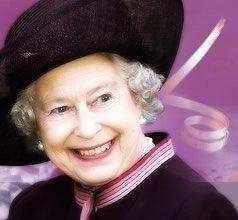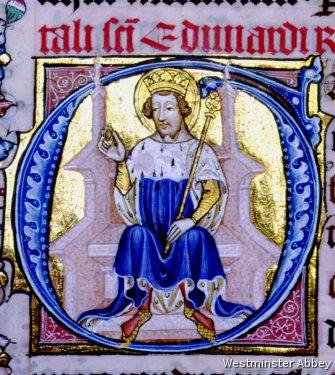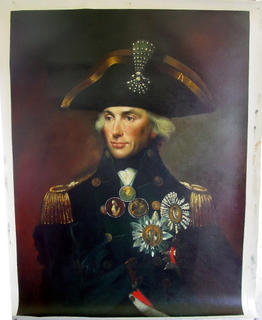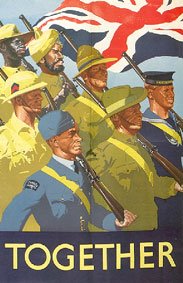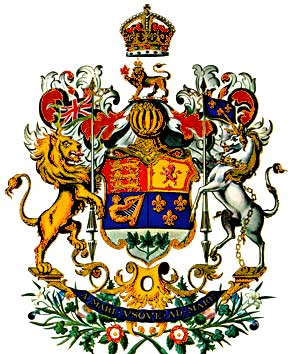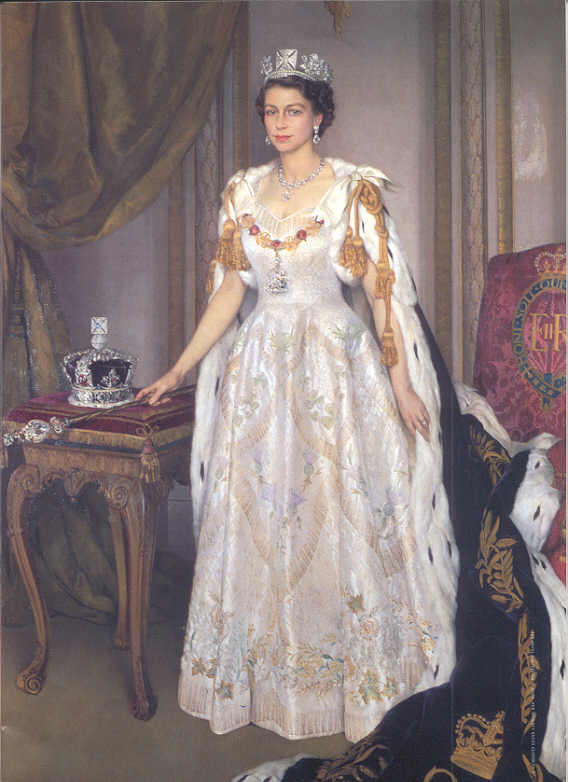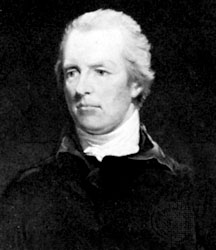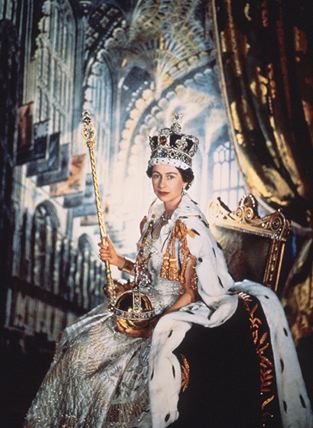[+] HONOURING OUR PATRON, SIR WINSTON CHURCHILL, VICTOR OF THE ENGLISH-SPEAKING PEOPLES
[+] HONOURING OUR QUEEN, ELIZABETH THE SECOND, ON THE 80TH YEAR OF HER BIRTH (1926 - 2006)
[+] HONOURING OUR KING, SAINT EDWARD THE CONFESSOR, ON THE 1000TH YEAR OF HIS BIRTH (1005 - 2005)
[+] HONOURING OUR HERO, LORD NELSON, ON THE BICENTENNIAL OF THE BATTLE OF TRAFALGAR (1805 - 2005)
[+] HONOURING OUR SONS, THE QUEEN'S COMMONWEALTH SOLDIERS KILLED IN THE 'WAR ON TERROR'
[+] HONOURING OUR VETS ON THE 150TH ANNIVERSARY OF THE VICTORIA CROSS (1856 - 2006)
Monarchist Contributor: Australian Professor of Law from Sydney
Joined the Monarchist in June 2005
Archive of Author's Works
Honouring Henry St John, 1st Viscount Bolingbroke (1678-1751), English Statesman
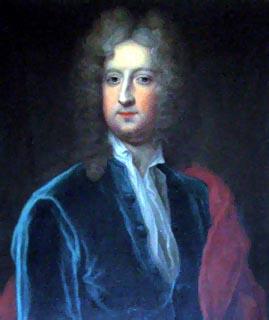 Prominent Tory politician and prime minister in the reign of Queen Anne of England and, later, a major political propagandist in opposition to the Whig Party led by Sir Robert Walpole. Friend of Swift and Pope (to whom he suggested the 'Essay on Man'). He wrote "Letters" bearing on politics and literature, and his chief fame is that of a rhetorician. His Ideal of a Patriot King shows him at his best.
Prominent Tory politician and prime minister in the reign of Queen Anne of England and, later, a major political propagandist in opposition to the Whig Party led by Sir Robert Walpole. Friend of Swift and Pope (to whom he suggested the 'Essay on Man'). He wrote "Letters" bearing on politics and literature, and his chief fame is that of a rhetorician. His Ideal of a Patriot King shows him at his best. Early career.
He was possibly educated at a Dissenting academy rather than at Eton and the University of Oxford, as has been claimed. In 1698–99 he traveled in Europe and in 1700 married Frances Winchcombe. In 1701 he entered Parliament, where he soon won a reputation by his superb oratory and his support of partisan Tory measures, including attacks on the previous Whig ministry and on the Protestant Dissenters, the Whigs' staunchest allies. His conduct soon brought him to the notice of the government, and, after he was made secretary at war (1704), he was converted, temporarily, to the moderate policies of Robert Harley, one of Queen Anne's principal ministers. For four years he worked hard to provide the Duke of Marlborough (1650-1722) with troops and equipment for the Spanish Succession, War of the (1701-1714) against France and then resigned with Harley (February 1708) when they failed to prevent the Whigs from dictating government policy. Failing to gain a seat in the 1708–10 Parliament, he urged Harley to ally with the Tory Party as the best means to defeat the Whigs.
In 1710 St. John became northern secretary of state in Harley's new ministry, but he soon emerged as an opponent of Harley's moderation and a rival to his authority. His efforts to control the government's policies and to supplant Harley (after 1711 the earl of Oxford) were largely unsuccessful. Oxford had initiated secret peace negotiations with France, but, even after he had learned of these and had forced his way into the discussions, St. John (after 1712 Viscount Bolingbroke) was not able to dictate the terms that were finally settled at the Treaty of Utrecht (1713). In Parliament, Bolingbroke was no more successful in leading a Tory rebellion against Oxford. He won over some Tories by such partisan measures as the Schism Act (1714), which aimed at depriving the Dissenters of their schools, but he failed to persuade the majority to support his leadership and was unable to give the Tories a clear lead on the disputed succession to Queen Anne. Oxford was eventually dismissed on July 27, 1714, but the Queen's death, on August 1, ruined Bolingbroke's hopes of replacing him.
Exile in France.
Dismissed from office by George I and fearing impeachment because of his role in the peace negotiations with France and his intrigues with the Jacobites (the supporters of James Edward, the Old Pretender), Bolingbroke fled to France (March 1715) and became the Old Pretender's secretary of state in July. This enabled the British government to pass an act of attainder against him by which his property and civil liberties were taken away. As a result, Bolingbroke's political future depended upon a successful Jacobite rebellion. Despite Bolingbroke's hard work, the attempted Jacobite rising in 1715 was a dismal failure. Amidst bitter recriminations, Bolingbroke was dismissed by the Old Pretender and at once sought to ingratiate himself with the Whig government in England. In 1717 he wrote a Letter to Sir William Wyndham (not published until 1753) to defend his actions since 1710 and to persuade the Tories to abandon the Jacobite cause. Not surprisingly, he found it difficult to persuade men to forget his recent conduct.
Forced to remain in exile, Bolingbroke sought other outlets for his talents. Mixing with aristocrats and scholars, including Voltaire, he embarked on biblical, historical, and philosophical studies and wrote several works, including Reflections upon Exile and Reflections Concerning Innate Moral Principles. Shortly after the death of his first wife, he married a French widow, the Marquise de Villette (1719).
 Return to England.
Return to England.After years of petitioning the British government and of trying to assist it with his limited influence at the French court, Bolingbroke was pardoned in 1723. He did not, however, resettle in England until 1725, when an act allowed him to buy a small estate at Dawley, near London; his attainder was never fully reversed, and he was unable to regain his peerage or reclaim his seat in the Lords. He imputed this exclusion from parliamentary life to the animosity of Sir Robert Walpole. Though his own frustrated ambition clearly motivated his long campaign against Walpole's political ascendancy, he was also concerned by the way Walpole appeared to monopolize power by the excessive use of bribery and corruption. While charges of such behaviour were exaggerated, there was enough truth in them to build up a formidable opposition to Walpole. At the centre of a literary circle that included Jonathan Swift, Alexander Pope, and John Gay, Bolingbroke waged an influential propaganda campaign. His major contributions to The Craftsman, an opposition journal, were the “Remarks on the History of England” (1730–31) and “A Dissertation upon Parties” (1733–34), both of which sought to end the old Whig–Tory disputes and to weld the disparate elements of the opposition to Walpole into a new Country Party, which would protect the independence of Parliament against the encroachments of a corrupt government.
Despite occasional successes, Bolingbroke was unable to bring down Walpole or create a united opposition party. In 1735 he retreated to France, where he continued his studies in philosophy and history, lamenting his countrymen's lack of patriotism in the struggle against Walpole. After he made a short visit to England in 1738, his hopes were revived when he learned of a new opposition party that was gathering at Leicester House around George II's son Frederick, prince of Wales. For this group, he wrote The Idea of a Patriot King. It was his most famous work, but it offered no real solution to the problems of defeating Walpole or of creating a “patriot” party. In any event, Prince Frederick did not live to become king, and Walpole's final defeat, in 1742, was not engineered by Bolingbroke.
In his last years, Bolingbroke lacked any real political influence, though he still made vain efforts to create a patriot ministry. He was further embittered by his discovery, in 1744, that Alexander Pope had secretly printed 1,500 copies of The Idea of a Patriot King for publication. When, in 1749, Bolingbroke published a corrected version of this work, he was bitterly attacked for taking the opportunity to reveal Pope's earlier breach of faith. Bolingbroke's failing health was further undermined by his distress at his wife's death (March 1750).
Bolingbroke was also a historian of some talent. Intelligent and widely read, he was also noted for his handsome appearance, graceful manners, and brilliant conversation. Clear and forceful in speech and in print and imperious in temperament, he captivated some of the finest minds of his age. On the other hand, he was a notorious libertine and a poor manager of men who tended to lose his nerve in a crisis, and his unscrupulous ambition betrayed him into serious political errors and gained him a reputation for treachery.Though he died a neglected figure, the posthumous publication of his works in 1754 stirred considerable controversy. His unorthodox religious views were at last made public and were denounced on all sides. Modern scholars have paid much less attention to his philosophical works, but he is widely regarded as one of the best contemporary analysts of the politics of the Whig supremacy.
Additional reading
H.T. Dickinson, Bolingbroke (1970), now the standard life, based on extensive research and seeking to integrate and interpret Bolingbroke's political career and intellectual development; W.S. Sichel, Bolingbroke and His Times, 2 vol. (1901–02, reprinted 1968), an old-fashioned biography, which is not very good on interpretation but which quotes much useful source material; G. Holmes, British Politics in the Age of Anne (1967), a brilliant analysis, based on exhaustive research; L. Kramnick, Bolingbroke and His Circle (1968), a stimulating study of the political ideology of the age of Walpole.
Biography Links: Wikipedia; Britannica; Internet Encyclopedia of Philosophy; Royal Berkshire History
Letters and Works: Dissertation Upon Parties; The Idea of a Patriot King; The Study and Use of History; On the Spirit of Patriotism


